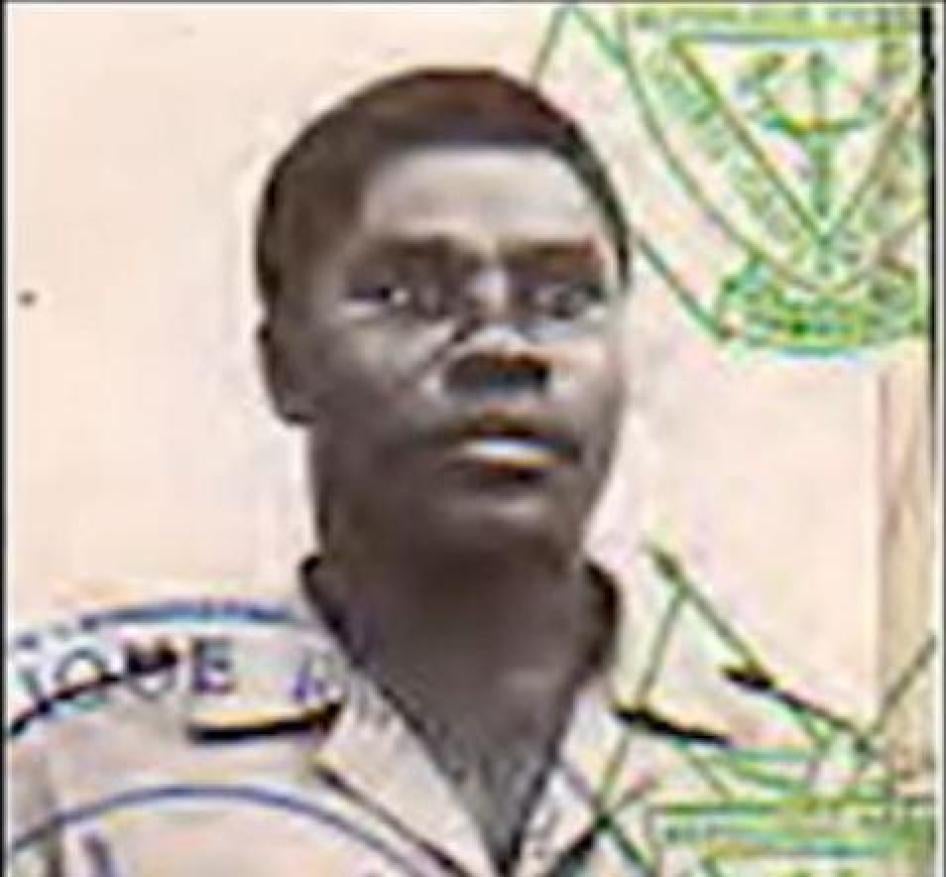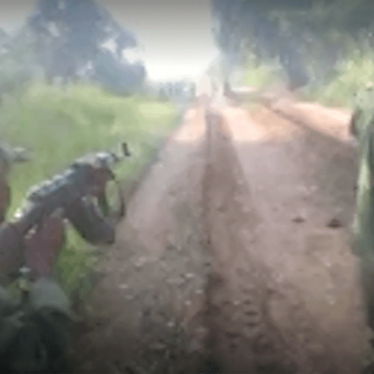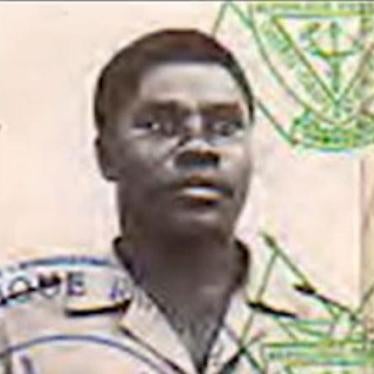Five years ago today, the International Criminal Court issued an arrest warrant for Sylvestre Mudacumura, the military commander of a rebel group based in eastern Democratic Republic of Congo, on nine counts of war crimes.
Congolese authorities, together with the United Nations peacekeeping mission in Congo, should redouble their efforts to send Mudacumura to The Hague.
As military commander of the Democratic Forces for the Liberation of Rwanda (FDLR), a largely Rwandan Hutu armed group, Mudacumura is wanted for attacks on civilians, murder, mutilation, cruel treatment, rape, torture, destruction of property, pillage, and outrages against personal dignity in Congo’s North Kivu and South Kivu provinces.
These charges relate to alleged crimes committed between January 2009 and September 2010. Human Rights Watch documented the killings of over 700 civilians by FDLR fighters during this period. Most victims were women, children, and the elderly whom the rebels hacked to death with machetes or hoes or burned to death in their homes. These attacks were accompanied by widespread rape and other sexual violence.
At the time, the Congolese army, together with the Rwandan army and later with support from the UN peacekeeping mission, waged a military campaign against the FDLR.
Some of the FDLR’s leaders participated in the 1994 genocide in neighboring Rwanda. Since then, Rwandan Hutu militias based in eastern Congo have reorganized politically and militarily, going through various name and leadership changes. The rebel group’s current configuration, the FDLR, was established in 2000. Its forces have been involved in numerous atrocities against Congolese civilians, and its presence remains one of the greatest obstacles to lasting peace in the region.
As they haven’t been brought to justice, FDLR fighters continue to carry out abuses, sometimes alongside other Congolese armed groups, or as a proxy for some Congolese army officials. Yet due in part to repeated military operations against the group and a UN program to disarm rebel fighters in Congo and reintegrate them into communities, the FDLR is now at one of its weakest points in history. It should be possible to arrest Mudacumura, if there’s the political will to do so.
His arrest would be a critical step toward ending attacks on civilians and advancing international justice in the region. It would also send a strong message to others responsible for grave crimes – in Congo and beyond – that one day, they too could face trial and imprisonment.










